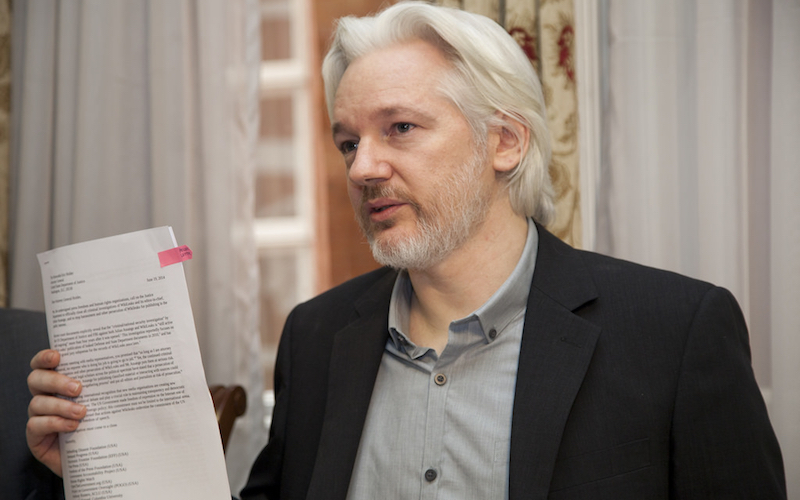
An Analysis of the Julian Assange Case
Julian Assange’s name is known to many, but the story behind his fame is more complicated than you might guess. You likely know Assange as the founder of WikiLeaks, an organization committed to blowing the whistle on political wrongdoings.
The documents made public by Assange and WikiLeaks have proven consistently inconvenient and embarrassing for the political establishment, but not, thus far, as embarrassing as the allegations against Assange himself. A years-long tussle with the law, which required him to huddle in foreign embassies for roughly the last seven years, has diminished Assange’s and WikiLeaks’ credibility considerably across the world.
So, what’s he accused of? Who accused him? And who might have a vested interested in discrediting him?
The case against Assange
The Assange case goes back to August 2010, when two women arrived together at a Swedish police department and gave an account that resulted in a warrant for Assange’s arrest. The charge was suspected rape.
The accounts are available for all to read. They involve Assange allegedly approaching these two women, sometimes less than fully clothed, to petition them for sex. They involve Assange allegedly forcing himself on them, possibly while one of them was sleeping, possibly without a condom — or possibly with a condom he knew was torn.
If you’ve ever heard Assange speak to the public or read anything he’s written, you know he does come across as thoughtful, measured and deeply rational. You might have a strong negative reaction to his message, but that might be politics talking — not the reasoned weighing of evidence.
It’s likely that nobody reading this knows Assange nor these women personally or was involved in the investigation. Here’s what we know:
The initial warrant was promptly canceled just days after it was brought. Assange himself insisted the accounts were “without basis” and Eva Finne, chief prosecutor at the time, agreed that she didn’t believe there was reason to suspect rape. Assange’s defense team had a few key points to make, which are worth mentioning here:
- Text messages suggest money was offered in exchange for going to the police. Before this, both women admitted to initiating consensual sex with Assange and didn’t complain of injury.
- The first woman didn’t accuse Assange until six days later — after she discovered he’d slept with the other complainant. Until this point, she’d spoken warmly of Assange.
- The second complainant said she fell asleep and thinks Assange consummated sex with her without a condom —which they laughed about after.
Maintaining a healthy skepticism in a case as complicated and contentious as this one, with crimes as allegedly awful as these, is important. But, if you’re following along, that last assertion by Assange’s defense team is perhaps the most damaging.
If one of his accusers is on record as literally laughing off one of the charges she helped bring against him, any other testimony she may have given can possibly be considered suspect. This is all very suspect testimony. And the fact that “political motivations” might be in play here make this case even more frustrating and perplexing.
What has Assange leaked, and where is he today?
In Mid-May of 2017, prosecutors in Sweden announced to the public that they were finally dropping any existing warrants for Assange’s arrest as well as their attempts to extradite him. It’s pretty clear this isn’t the end of his legal troubles, but it’s a notable step forward for a man who spent years hunkered down in foreign embassies.
The conversation isn’t complete without calling attention to some of the most significant contributions WikiLeaks has made to the political public discourse.
- December, 2007: WikiLeaks releases U.S. Army field manual for Guantanamo Bay, which describes cruel and inhuman treatment of detainees.
- October, 2009: Releases scientific studies concerning the long-term health impacts of corporate waste dumping practices in Africa.
- July, 2010: Releases several thousand classified U.S. military documents shedding light on war crimes committed by coalition troops in Afghanistan, including civilian deaths.
Other WikiLeaks dispatches have proven even more controversial. In 2009, the organization released emails sent and received by climate scientists over 13 years, which skeptics seized upon as evidence that scientists were misleading the public over manmade climate change.
Most who dug into the issue indicated the release of the emails showed little more than poor email etiquette and changed nothing about the scientific consensus.
Most recently, WikiLeaks released nearly 9,000 documents detailing how the U.S. built the largest and most invasive surveillance infrastructure in history and then turned it against the American people. You may know this batch of leaks as “Vault.”
WikiLeaks also severely damaged the reputation of the Democratic Party at an inconvenient moment in our history by releasing thousands of internal emails revealing impropriate behavior ranging from feeding questions to preferred candidates at debates to plotting regime change.
As you can see, WikiLeaks is a disruptive political force by any measure and regularly infuriates people all over the political spectrum. No matter what you might think or feel about the allegations against Assange himself, this is what it looks like when an organization favors transparency in government first and specific political agendas second.

